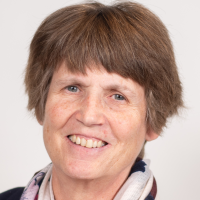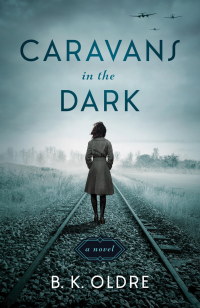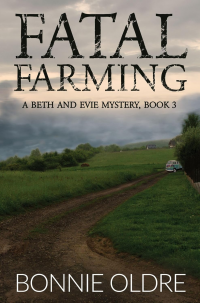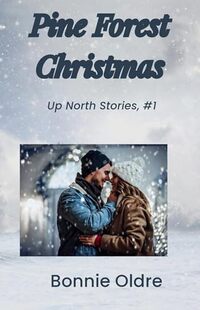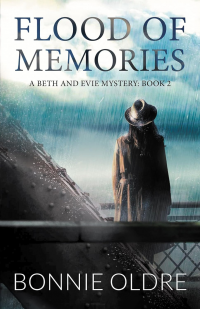Can you share more about your early experiences with books and reading? How did your library card become such a prized possession for you?
Growing up in the pre-Internet days, my main windows to the world were TV and print media. A curious child, I sought out information as well as entertainment through both sources. As a member of a large Catholic family—I was one of eight children—there wasn’t a lot of money to spare, which wasn’t unusual in the 1950s and 1960s. Naturally, I valued free access to books and magazines that the library provided. But, I always loved to read. One of my earliest memories is when I was only three or four years old, I pushed a chair across the kitchen floor, climbed onto the kitchen counter, and retrieved a picture book that my mother had put on top of the cupboards. I don’t remember why she put it there, or what the book was about, but I remember the pages had scalloped edges and bright illustrations. I immediately sat down on the countertop and started paging through it, eagerly examining the pictures and wondering what the words meant.
The library and the adjacent city swimming pool seem to be important settings in your childhood. How do you think these environments influenced your love for reading and writing?
A family pass to the swimming pool was one investment my mother made each summer. I’m sure she enjoyed a little peace and quiet, while we were out of the house, and she also valued the swimming lessons that came with the seasonal pass. Each morning, throughout grade school—grade one through eight—I headed off with my sisters and brother to attend lessons. Often followed by a stop at the adjacent library for an armload of books. To me, that was a perfect summer morning. Summer time spent at the pool and in the library was a time of freedom and fun, away from the ever watchful eye of teachers and parents. These positive feelings reinforced a love of both reading and swimming. As for writing, it wasn’t until much later that it occurred to me I could write stories. I thought of them as just existing, not about how they were created. No one I knew was a writer.
The Hardy Boys, Sherlock Holmes, and Agatha Christie are mentioned as some of your favorite authors. How did detective and mystery fiction impact your literary journey and your eventual focus on historical fiction?
Those were certainly among my favorites, but there were others, including Western novelists, such as Max Brand. As a child, I collected his paperback novels. At that time, Westerns were also popular TV shows. That was probably my first introduction to historical fiction. Although, as we now know, they were a highly fictionalized form of history. It probably wasn’t until high school and college that I began to have a more serious interest in history. I began to wonder how things came to be the way they were, and read historical nonfiction. I carried those interests forward and now write both historical mysteries and historical novels.
Your passion for writing ignited when your high school poem was published. Can you recall the emotions you felt when you saw your work in print for the first time?
I was briefly elated. But, I don’t recall compliments, or even anyone commenting on it, so it was a bit of a letdown. I have since learned that most people simply are not that interested in someone else’s achievements, and to not put too much stock in external validation.
Could you tell us about your experiences as a copy-editor for church bulletins and your time as a volunteer writer and editor for your neighborhood newspaper? How did these roles contribute to your growth as a writer?
After college, I had a few literary-adjacent jobs/hobbies, including these two. Another one was working in a book wholesaler, when I realized that carrying 40-pound boxes of books and piling them on pallets was too physically taxing. So I improved my typing skills, got a job at the University of Minnesota, my alma mater, and ultimately began working in libraries. In retrospect, these experiences led me to see print media, such as books, journals, and even church bulletins, as products, and something that I could, potentially, create.
Transitioning from short stories to becoming a librarian is quite a shift. How did your role as a librarian influence your writing, if at all?
Working as a reference librarian influenced me a great deal. In my spare moments, while helping students with their research, I began to do the research that ultimately became Caravans in the Dark. Although it is the third book I published—I published two mysteries, Silent Winter Solstice and Flood of Memories prior to the publication of Caravans in the Dark—it was the first novel I wrote.
Pursuing graduate studies and taking writing classes at various institutions demonstrates a commitment to honing your craft. How did these experiences shape your writing perspective and skills?
While earning a B.A. in English literature, I took the required writing classes at the University of Minnesota, and I wrote many term papers, both as an undergraduate and a graduate student. However, academic writing and creative writing are very different. At that time, the U didn’t have undergraduate creative writing classes. I filled in some gaps in my knowledge about the craft of writing fiction by reading books on the subject, and taking classes at The Loft Literary Center. I continue to work on honing my craft, and I hope my writing reflects my growth as a writer.
Historical fiction seems to be a significant focus for you, as evidenced by your pen name B.K. Oldre. What draws you to this genre, and how do you approach the research and storytelling process?
I enjoy historical fiction. I think it can give us some perspective on our own times. It is hopeful, because the events already occurred and we know that, though sometimes dire things happened, somehow it all worked out. I did a lot of research for Caravans in the Dark, and its not-yet-published sequel. I read books on WWII, Czechoslovakia, and the Roma before and during the writing of the novel. My historical mysteries are within my lived time, so I rely largely on memory, with brief excursions into Google and library databases, as needed.
How did you come up with the idea for your book, Caravans in the Dark: A Novel?
I was originally drawn to the genre after doing research on my maternal ancestry. That side of the family came from what is now the Czech Republic. It seemed to me that the time period just before World War II, and the events that led up to the war, were not well known. I also realized that the persecution of the Roma is not a well-known subject. I wrote the book to both inform and entertain.
Writing can be a solitary pursuit. How do you balance your personal writing journey with your family life and other commitments?
Something of an introvert, I enjoy time alone. Getting time for writing was a problem while raising children and working. In fact, I got very little done, then, except during the summers. I worked in an academic library, so I generally had summers off. Now that I am retired, writing is my main occupation. I have other activities and hobbies that I spend time on, mainly on the weekends and evenings. I spend most evenings with my spouse and family. I belong to several organizations, a book club, a writers’ group, and a choir, and take piano lessons. So, I feel that I have a good life balance.
What advice would you give to aspiring writers who are looking to balance their passion for writing with the demands of daily life and bills?
If you really want to write, find the time and do it. Make it your job and work at it. Take classes and get serious about producing pages. Don’t wait. I regret not having made an earlier start. I was too tentative. In a sense, I kept waiting for someone to tell me that I was a writer, rather than claiming the role for myself.
Could you share a bit about your writing routine and creative process? Do you have any rituals or habits that help you get into the writing mindset?
I have an office and a specific time devoted to writing. That time, for me, is after lunch and before dinner, six days a week. During that time, I am in my office either writing, reading, or getting some writing business done. I try to always run errands and schedule appointments in the morning.
As a lifelong resident of Minnesota, how does your sense of place influence your writing?
My sense of place is a big part of my mystery novels. It is set in the fictional city of Davison City, MN, loosely based on Crookston, MN, the town where I grew up. While writing Caravans in the Dark I visited Prague and the surrounding areas. I walked the streets and rode the trolleys that my characters walked and rode. Nothing compares to being in a place you write about, if at all possible. Though, Google Earth helps, too.
Are there any upcoming projects or books that you are excited about and would like to share with your readers?
I am currently writing the third in my Beth and Evie mystery series. There will be another baffling mystery to solve, and more twists and turns for these intrepid young women. The second Caravans book is written, and I am seeking the best way to publish it. Currently, I am querying agents for it, so keep your fingers crossed for me.
Lastly, how would you rate your experience with AllAuthor so far? Could you pinpoint some things you really like or dislike?
I am very happy with my AllAuthor experience. I especially like the weekly tweets that you send out about my books, and I loved picking out the book banners that go out with the tweets. I have also used some of them in Facebook ads and blog posts.

